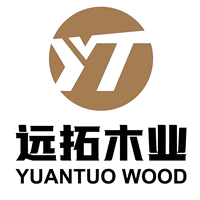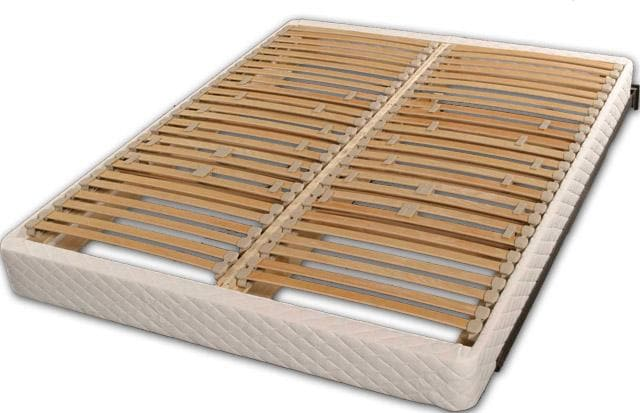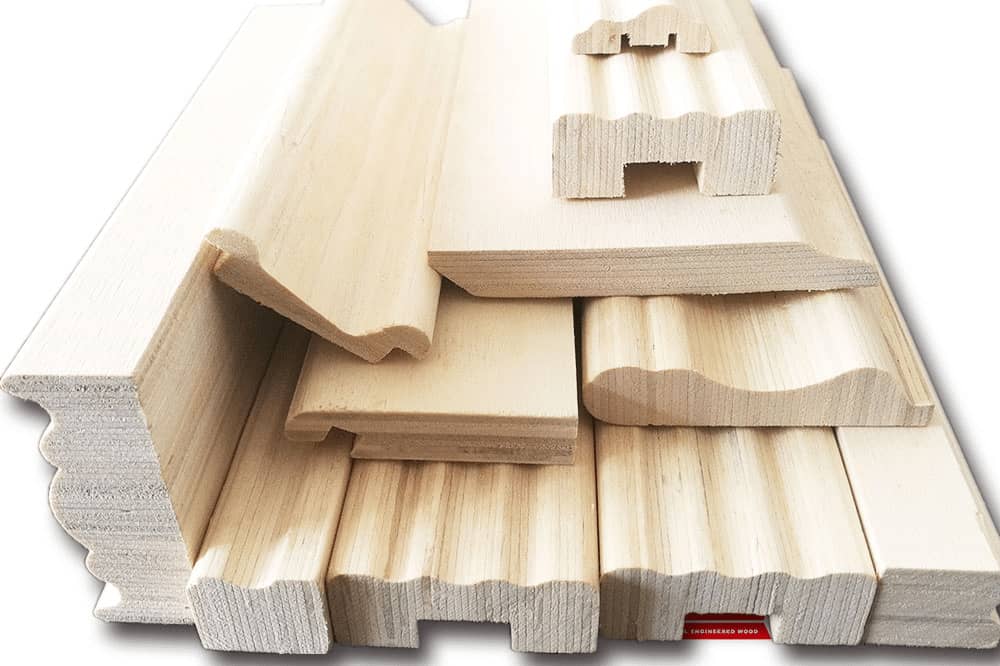Poruszanie się po alejce z tarcicą może przypominać przemierzanie obcej krainy, zwłaszcza podczas zaopatrywania się w drewno. sklejka. W obliczu niezliczonych opcji walczących o Twoją uwagę, często pojawia się jedno pytanie: Sklejka krajowa czy importowana? Decyzja ta, często obarczona błędnymi przekonaniami, może mieć znaczący wpływ na budżet projektu, jego harmonogram, a ostatecznie na jego powodzenie.
Ten kompleksowy przewodnik zagłębia się w Sklejka krajowa a importowana debaty, wyposażając naszych cenionych partnerów biznesowych w wiedzę potrzebną do podejmowania świadomych decyzji dotyczących zaopatrzenia. Obalimy powszechne mity, przeanalizujemy niuanse związane z jakością, kosztami i dostępnością oraz umożliwimy Ci pewny wybór najlepszej sklejki do Twoich konkretnych potrzeb.
Krajowa sklejka: Bliższe spojrzenie na rodzimą jakość
Sklejka krajowa odnosi się do sklejki produkowanej w kraju, w którym prowadzona jest działalność, przy użyciu drewna pochodzącego z lokalnych lasów. Często wywołuje ona poczucie swojskości, niezawodności i wsparcia dla lokalnego przemysłu. Ale poza tymi odczuciami istnieją namacalne czynniki, które przyczyniają się do jej atrakcyjności.
Zalety sklejki krajowej:
- Rygorystyczna kontrola jakości: Krajowi producenci sklejki często przestrzegają rygorystycznych norm jakości i przepisów, zapewniając stałą jakość i wydajność. Normy te, często egzekwowane przez stowarzyszenia branżowe lub agencje rządowe, zapewniają pewien poziom pewności i odpowiedzialności.
- Wspieranie lokalnych gospodarek: Wybór krajowej sklejki bezpośrednio wspiera lokalne miejsca pracy, praktyki leśne i ogólną gospodarkę. Ten efekt domina może wzmocnić społeczności i sprzyjać zrównoważonemu rozwojowi branży.
- Niższe koszty transportu i krótszy czas realizacji zamówień: Zaopatrzenie w kraju często przekłada się na niższe koszty transportu i krótszy czas realizacji, zwłaszcza w przypadku dużych zamówień. Może to być znaczącą zaletą w przypadku projektów, w których liczy się czas lub firm działających w napiętych terminach.
- Łatwo dostępne zasoby: Krajowi dostawcy sklejki zazwyczaj utrzymują łatwo dostępne zapasy, minimalizując potencjalne opóźnienia i zapewniając sprawniejszy proces zaopatrzenia. Taka dostępność może mieć kluczowe znaczenie dla projektów wymagających natychmiastowej dostępności materiałów.

Potencjalne wady krajowej sklejki:
- Ograniczone gatunki drewna: Dostawcy krajowi mogą oferować ograniczony wybór gatunków drewna, potencjalnie ograniczając opcje projektowe lub wymagając kompromisów w oparciu o dostępność.
- Wahania cen: Krajowe ceny sklejki mogą być podatne na wahania lokalnych cen drewna, popytu rynkowego i zmian sezonowych.
- Wyższe koszty pracy: Wyższe koszty pracy w niektórych regionach mogą przyczynić się do wyższej ogólnej ceny sklejki krajowej w porównaniu do opcji importowanych.
Importowana sklejka: Odkrywanie globalnego krajobrazu
Sklejka importowana, jak sama nazwa wskazuje, pochodzi od producentów spoza granic kraju. Chociaż często postrzegana jest jako opcja bardziej przyjazna dla budżetu, importowana sklejka obejmuje szerokie spektrum jakości, przepisów i praktyk pozyskiwania.
Zalety importowanej sklejki:
- Oszczędności kosztów: Importowana sklejka, szczególnie z regionów o niższych kosztach pracy i produkcji, może zapewnić znaczne oszczędności, zwłaszcza w przypadku projektów na dużą skalę.
- Różnorodne gatunki drewna: Dostęp do szerszej gamy gatunków drewna, w tym odmian egzotycznych lub specjalnych, rozszerza możliwości projektowe i zaspokaja różnorodne preferencje estetyczne.
- Konkurencyjny rynek globalny: Konkurencyjny charakter globalnego rynku sklejki może napędzać innowacje, wydajność i konkurencyjne ceny wśród dostawców.
- Specjalistyczna wiedza: Niektóre regiony rozwinęły specjalistyczną wiedzę w zakresie określonych rodzajów sklejki lub technik produkcji, oferując dostęp do unikalnych produktów lub możliwości.
Skoncentruj się na imporcie z Chin: Potęga produkcji sklejki
Chiny stały się wiodącym światowym dostawcą sklejki, oferując atrakcyjną kombinację czynników, które przynoszą korzyści wymagającym nabywcom:
- Konkurencyjne ceny: Wydajne procesy produkcyjne w Chinach i korzyści skali często przekładają się na bardzo konkurencyjne ceny, co czyni je atrakcyjną opcją dla projektów o ograniczonym budżecie.
- Ogromne możliwości produkcyjne: Chiny mogą pochwalić się ogromnym potencjałem produkcyjnym sklejki, zdolnym do realizacji zamówień na dużą skalę i spełniania wysokich wymagań projektowych.
- Szeroka gama produktów: Chińscy producenci oferują zróżnicowaną gamę produktów ze sklejki, przeznaczonych do różnych zastosowań, od budownictwa i mebli po zastosowania dekoracyjne i specjalistyczne.
- Elastyczność i personalizacja: Chińscy dostawcy są często znani ze swojej elastyczności w dostosowywaniu się do niestandardowych zamówień, specyficznych specyfikacji i unikalnych wymagań projektowych.
- Wsparcie rządowe i inwestycje: Chiński rząd dokonał znaczących inwestycji w przemysł sklejkowy, wspierając wzrost, innowacje i handel międzynarodowy.
Potencjalne wady importowanej sklejki:
- Różnice w jakości: Normy i przepisy dotyczące kontroli jakości mogą znacznie różnić się w poszczególnych krajach, potencjalnie prowadząc do niespójności w zakresie jakości, trwałości i wydajności.
- Dłuższy czas realizacji: Import sklejki często wiąże się z dłuższym czasem realizacji ze względu na odległości wysyłki, odprawę celną i potencjalne wyzwania logistyczne.
- Wahania kursów walut: Wahania kursów walut mogą wpływać na ostateczny koszt importowanej sklejki, wprowadzając poziom niepewności finansowej, zwłaszcza w przypadku projektów długoterminowych.
- Problemy środowiskowe: Zaopatrzenie z zagranicy budzi obawy dotyczące zrównoważonych praktyk leśnych, wylesiania i wpływu transportu długodystansowego na środowisko.
Porównanie "łeb w łeb": Sklejka krajowa vs. importowana
Tabela 1: Kluczowe kwestie dotyczące sklejki krajowej i importowanej
| Cecha | Sklejka krajowa | Importowana sklejka |
|---|---|---|
| Kontrola jakości | Zazwyczaj bardziej rygorystyczne i spójne | Mogą się znacznie różnić w zależności od kraju i producenta |
| Koszt | Ogólnie wyższe ze względu na koszty pracy i produkcji | Potencjalnie niższe, zwłaszcza z regionów o niższych kosztach produkcji |
| Dostępność | Często łatwo dostępne z krótszym czasem realizacji | Może wiązać się z dłuższym czasem realizacji ze względu na koszty wysyłki i odprawy celnej. |
| Gatunki drewna | Może oferować ograniczony wybór gatunków krajowych | Dostęp do szerszej gamy gatunków drewna, w tym odmian egzotycznych |
| Wpływ na środowisko | Wspiera lokalną gospodarkę i zrównoważone praktyki leśne | Obawy związane z wylesianiem, emisjami z transportu i różnymi przepisami środowiskowymi |
Podejmowanie świadomych decyzji: Czynniki do rozważenia
Wybór między sklejką krajową a importowaną nie jest decyzją uniwersalną. Należy kierować się kilkoma czynnikami, aby wybrać najlepszą opcję dla konkretnego projektu i potrzeb biznesowych.
1. Budżet projektu:
- Projekty wrażliwe na koszty: Importowana sklejka, zwłaszcza z regionów o niższych kosztach produkcji, może oferować znaczne oszczędności, co czyni ją atrakcyjną opcją dla projektów o ograniczonym budżecie.
- Projekty o wysokiej wartości: W przypadku projektów, w których jakość i spójność są najważniejsze, rygorystyczna kontrola jakości sklejki krajowej i jej niezawodne działanie mogą uzasadniać wyższą początkową inwestycję.
2. Harmonogram projektu:
- Projekty wrażliwe na czas: Krótszy czas realizacji zamówień na sklejkę krajową i łatwo dostępne zapasy mogą mieć kluczowe znaczenie dla projektów o napiętych terminach lub wymagających natychmiastowej dostępności materiału.
- Elastyczne ramy czasowe: Jeśli harmonogram projektu pozwala na dłuższy czas realizacji, importowana sklejka może być realną opcją, zapewniając czas na nawigację po logistyce wysyłki i potencjalnych opóźnieniach celnych.
3. Wymagania jakościowe:
- Wymagające aplikacje: Projekty wymagające wyjątkowej wytrzymałości, trwałości i stałej wydajności, takie jak zastosowania konstrukcyjne lub obszary o dużym natężeniu ruchu, mogą skorzystać z niezawodnej jakości sklejki krajowej.
- Zastosowania estetyczne: Szersza gama gatunków drewna w importowanej sklejce, w tym egzotyczne lub atrakcyjne wizualnie odmiany, może zwiększyć atrakcyjność estetyczną projektów, w których wygląd jest najważniejszy.
4. Względy środowiskowe:
- Koncentracja na zrównoważonym rozwoju: Wybór krajowej sklejki wspiera lokalną gospodarkę, zrównoważone praktyki leśne i zmniejsza wpływ na środowisko związany z transportem na duże odległości.
- Weryfikacja zrównoważonego pozyskiwania: Rozważając import sklejki, priorytetowo traktuj dostawców zaangażowanych w zrównoważone praktyki leśne, certyfikowane przez renomowane organizacje, takie jak Forest Stewardship Council (FSC).
5. Relacje z dostawcami:
- Ustanowione partnerstwa: Wykorzystanie istniejących relacji z zaufanymi dostawcami krajowymi może usprawnić procesy zaopatrzenia, zapewnić niezawodną komunikację i spokój ducha.
- Odkrywanie nowych możliwości: Wejście na globalny rynek importowanej sklejki może otworzyć drzwi do nowych relacji z dostawcami, potencjalnie odkrywając unikalne gatunki drewna, konkurencyjne ceny lub specjalistyczne możliwości produkcyjne.
Poruszanie się po globalnym rynku sklejki: Wskazówki dotyczące sukcesu
Niezależnie od tego, czy wybierzesz sklejkę krajową, czy importowaną, poniższe wskazówki pomogą Ci skutecznie poruszać się po rynku i podejmować świadome decyzje dotyczące zaopatrzenia:
- Współpraca z renomowanymi dostawcami: Dokładnie zbadaj potencjalnych dostawców, sprawdzając certyfikaty, powiązania branżowe i opinie klientów, aby upewnić się, że są zaangażowani w jakość, etyczne pozyskiwanie i niezawodną obsługę.
- Zamów próbki: Przed złożeniem dużych zamówień należy poprosić o próbki od różnych dostawców, aby ocenić jakość, wygląd i konsystencję ich sklejki z pierwszej ręki.
- Weryfikacja certyfikatów: Szukaj sklejki certyfikowanej przez renomowane organizacje, takie jak Forest Stewardship Council (FSC), aby upewnić się, że pochodzi ona z odpowiedzialnie zarządzanych lasów.
- Zrozumienie systemów oceniania: Zapoznaj się z systemami klasyfikacji sklejki, które różnią się w zależności od kraju, aby upewnić się, że porównujesz jabłka z jabłkami podczas oceny jakości i ceny.
- Negocjowanie cen i warunków płatności: Nie wahaj się negocjować cen, zwłaszcza w przypadku dużych zamówień, i ustal jasne warunki płatności, aby chronić swoje interesy biznesowe.
- Czynnik w spedycji i logistyce: Przy obliczaniu całkowitego kosztu importowanej sklejki należy wziąć pod uwagę koszty wysyłki, ubezpieczenia, cła i potencjalne wyzwania logistyczne.
- Jasna komunikacja z dostawcami: Ustanów jasne kanały komunikacji z dostawcami, określając konkretne wymagania, oczekiwania jakościowe i terminy dostaw, aby zminimalizować nieporozumienia i potencjalne opóźnienia.
Dlaczego warto wybrać sklejkę Yuantuo Wood?
Przy Yuantuo WoodRozumiemy złożoność pozyskiwania sklejki i staramy się być zaufanym partnerem w poruszaniu się po globalnym rynku. Oto dlaczego wybierają nas wymagające firmy:
- Globalne doświadczenie w zakresie zaopatrzenia: Wykorzystujemy naszą rozległą sieć i wiedzę branżową, aby pozyskiwać wysokiej jakości sklejkę zarówno od producentów krajowych, jak i międzynarodowych, w tym wiodących dostawców z Chin.
- Niezachwiane zaangażowanie w jakość: Utrzymujemy rygorystyczne standardy kontroli jakości, zapewniając, że każdy arkusz sklejki spełnia dokładne specyfikacje i wymagania dotyczące wydajności.
- Konkurencyjne ceny i elastyczne rozwiązania: Oferujemy konkurencyjne ceny na wszystkie nasze produkty i ściśle współpracujemy z klientami w celu dostosowania rozwiązań do ich budżetu i potrzeb projektowych.
- Niezawodna logistyka i terminowość dostaw: Nasz doświadczony zespół logistyczny zapewnia sprawną i terminową dostawę, minimalizując potencjalne opóźnienia i utrzymując projekty na właściwym torze.
- Dedykowana obsługa klienta: Jesteśmy dumni z tego, że zapewniamy wyjątkową obsługę klienta, prowadząc go przez każdy etap procesu pozyskiwania i odpowiadając na jego obawy z najwyższą starannością.
Nawiąż współpracę z Yuantuo Wood i poczuj różnicę, jaką daje współpraca z dostawcą sklejki, dla którego priorytetem jest Twój sukces. Skontaktuj się z nami już dziś, aby omówić swoje konkretne wymagania i pozwól nam pomóc Ci znaleźć idealną sklejkę do następnego projektu.
Podsumowanie: Właściwy wybór dla Twojej firmy
Decyzja o zakupie sklejki krajowej lub importowanej jest wieloaspektowa i zależy od wielu czynników. Dokładne rozważenie zalet i wad, uwzględnienie unikalnych potrzeb biznesowych i współpraca z renomowanymi dostawcami pozwala pewnie poruszać się po rynku sklejki i zapewnić najlepsze materiały do swoich projektów.
Pamiętaj, wiedza to potęga. Uzbrojony w spostrzeżenia z tego przewodnika, jesteś dobrze przygotowany do podejmowania świadomych decyzji, optymalizacji strategii zaopatrzenia i ostatecznie osiągnięcia sukcesu w swojej firmie.



